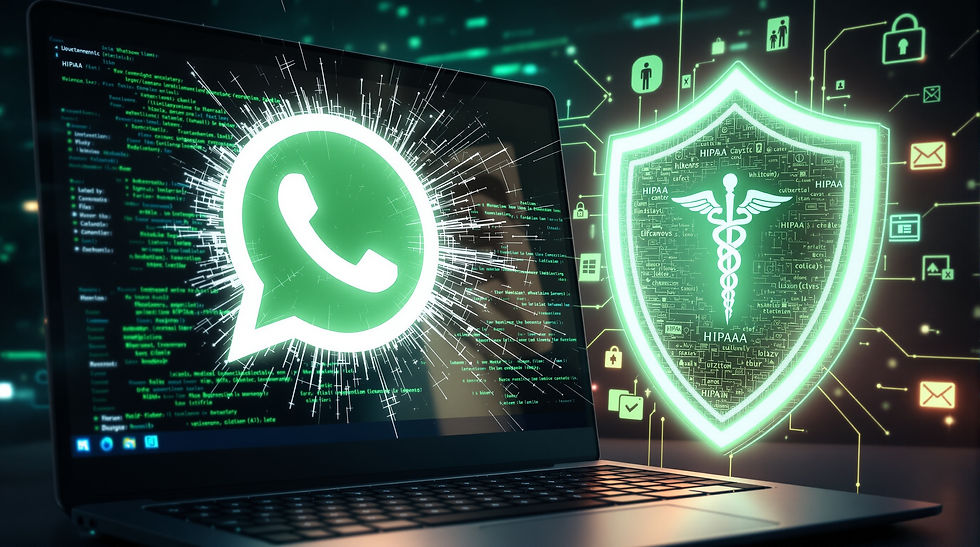WhatsApp Vulnerability Sparks Urgency Around Healthcare Offices Using Software Not Following New HIPAA Guidelines
- Jeff Wolff

- Jun 30
- 2 min read

A newly disclosed vulnerability in WhatsApp is raising alarms in the cybersecurity community and shining a spotlight on the risks of using consumer-grade applications on business systems—particularly in sensitive industries like healthcare.
As reported by Bleeping Computer, Meta recently confirmed a serious security flaw in WhatsApp for Windows (CVE-2025-30401), which allowed attackers to execute arbitrary code simply by sending a malicious file. The issue, categorized as a spoofing vulnerability, was tied to how WhatsApp displayed and opened attachments: the file would appear safe based on its MIME type, but would actually execute based on its file extension. This mismatch created an opportunity for attackers to trick users into launching harmful files directly from the WhatsApp interface.
The vulnerability, now patched in version 2.2450.6, affected all prior versions of WhatsApp for Windows. Meta credited an external researcher for reporting the flaw via its Bug Bounty program. While no evidence has been shared publicly that CVE-2025-30401 was exploited in the wild, its discovery follows a string of concerning issues linked to WhatsApp in recent months.
In July 2024, Meta addressed another WhatsApp vulnerability where Python and PHP files could be executed without warning on Windows machines with the appropriate runtimes installed. The messaging platform has also been at the center of multiple spyware-related incidents. Most notably, WhatsApp was used as a delivery mechanism in high-profile spyware campaigns involving Graphite and Pegasus, some of which required no user interaction at all.
Updated 2025 HIPAA guidelines
These incidents underscore a growing concern for healthcare organizations: the widespread use of non-HIPAA-compliant consumer applications on workstations or personal mobile devises that manage or store protected health information (PHI). Under updated 2025 HIPAA guidelines, medical practices are expected to tighten controls on software used within their environments—particularly apps not built with healthcare compliance in mind.
Applications like WhatsApp, though convenient for day-to-day team communication, were never intended for use in clinical or administrative settings where privacy and data protection are paramount. Their continued use on business systems introduces unnecessary risk and can lead to compliance violations, data breaches, and exposure of sensitive patient records.
With cyberattacks growing more sophisticated and healthcare data among the most valuable targets, even a single unpatched app can become an entry point for threat actors. The WhatsApp incident serves as another reminder that convenience must never outweigh compliance and security in a medical IT environment.



Comments